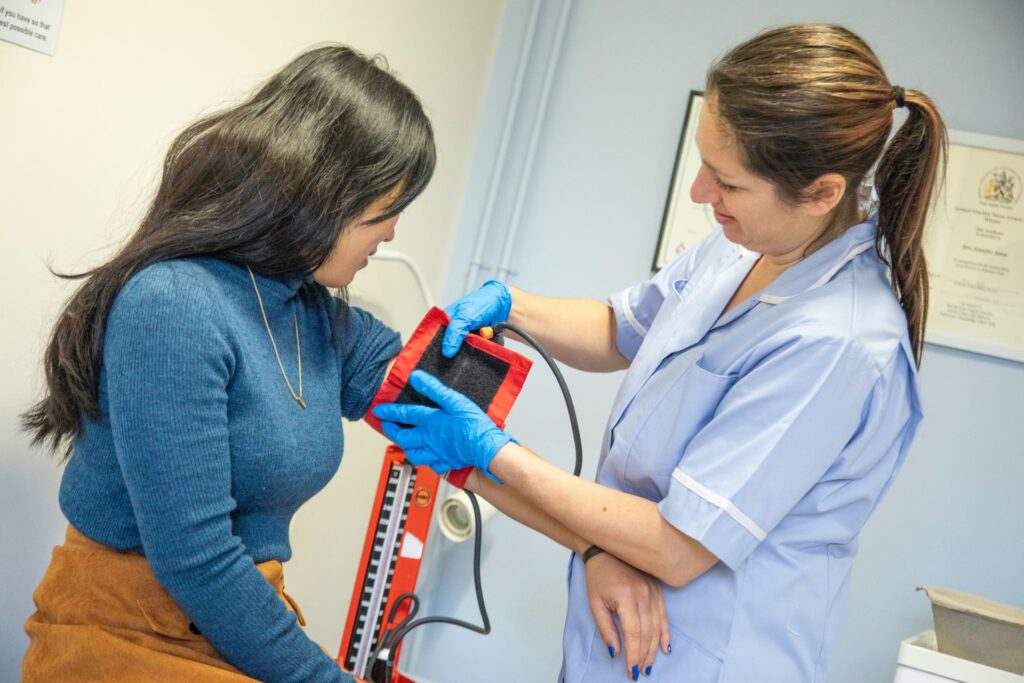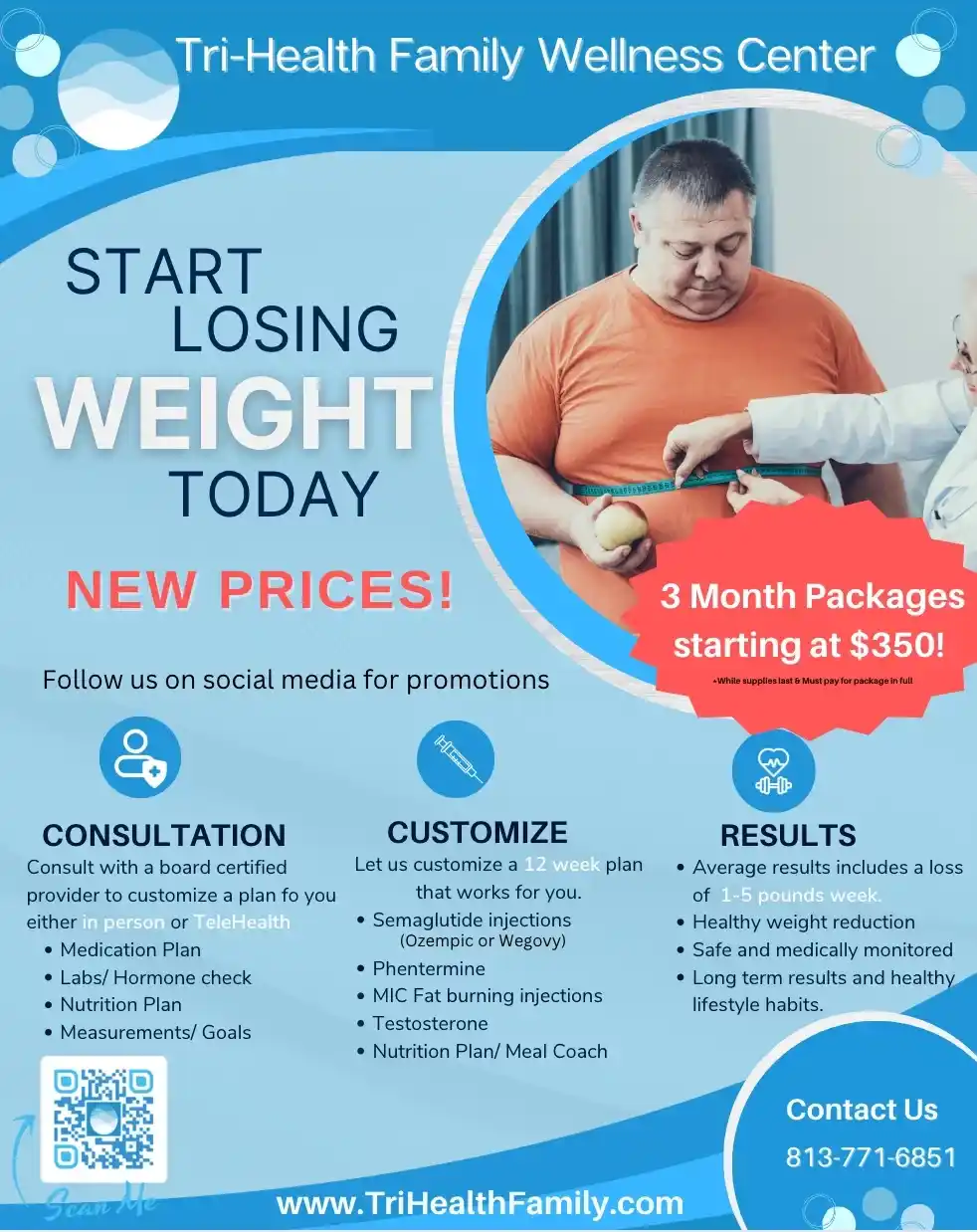Tri Health Family Wellness Center
Understanding Hypertension: Taking Control of Your Blood Pressure
Dear patients,
Today, we want to bring your attention to a common health condition that affects many individuals—Hypertension, or high blood pressure. By providing you with essential information, we aim to empower you in managing this condition effectively.
Hypertension occurs when the force of blood against your artery walls is consistently too high. It is often referred to as the “silent killer” because it typically shows no symptoms but can lead to serious health complications if left uncontrolled. Here are some key points to help you take control of your blood pressure:
1. Know Your Numbers: Regular monitoring of your blood pressure is crucial in understanding your condition. Ideal blood pressure is generally below 120/80 mmHg. Work with your healthcare provider to establish target levels specific to your needs.
2. Adopt a Healthy Lifestyle: Simple lifestyle modifications can make a significant impact on managing hypertension. Maintain a well-balanced diet rich in fruits, vegetables, whole grains, and low-fat dairy products while minimizing sodium, saturated fats, and added sugars. Engage in regular physical activity, such as brisk walking, swimming, or cycling, aiming for at least 150 minutes per week.
3. Manage Stress: Chronic stress can contribute to elevated blood pressure levels. Explore stress-reducing techniques such as deep breathing exercises, meditation, yoga, or engaging in hobbies that bring you joy. Finding healthy outlets for stress can positively influence your overall well-being.
4. Medication and Treatment: In some cases, lifestyle changes alone may not be sufficient to control hypertension. Your healthcare provider may prescribe medications to help manage your blood pressure. It is essential to follow their recommendations and take medications as prescribed.
5. Limit Alcohol and Tobacco: Excessive alcohol consumption and smoking can significantly impact blood pressure. If you drink alcohol, do so in moderation, and if you smoke, consider quitting. Seek support from healthcare professionals or support groups to help you make positive changes.
6. Regular Check-ups: Routine visits to your healthcare provider are essential for monitoring your blood pressure and assessing your overall health. Regular check-ups allow for adjustments in your treatment plan as needed.
Remember, managing hypertension is a lifelong commitment to your health. By adopting a proactive approach, making healthy choices, and working closely with your healthcare provider, you can effectively control your blood pressure and reduce the risk of related complications.
Empower yourself with knowledge and take the necessary steps towards a healthier future.
Sincerely,
Trihealth Family



